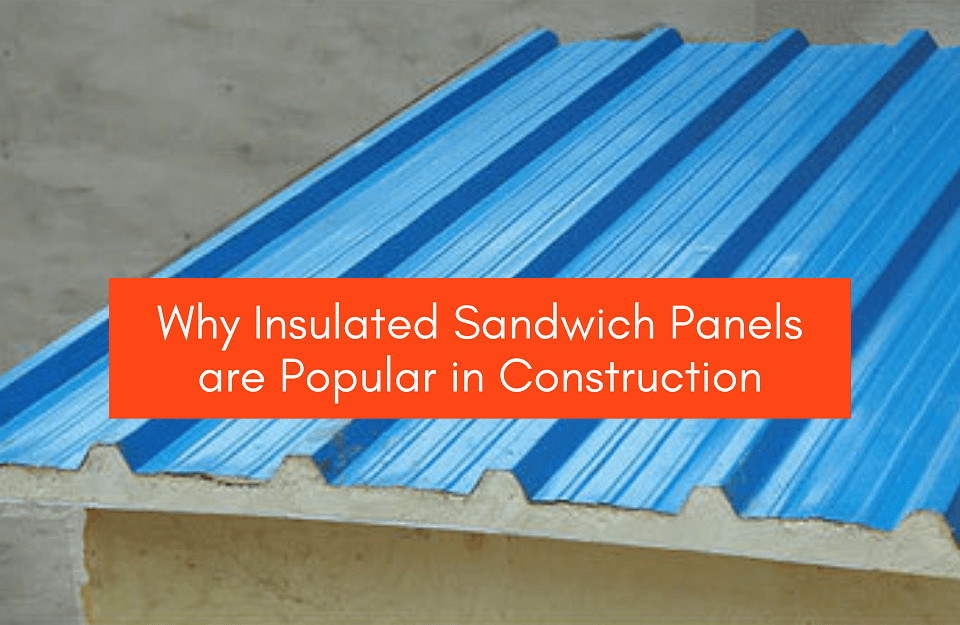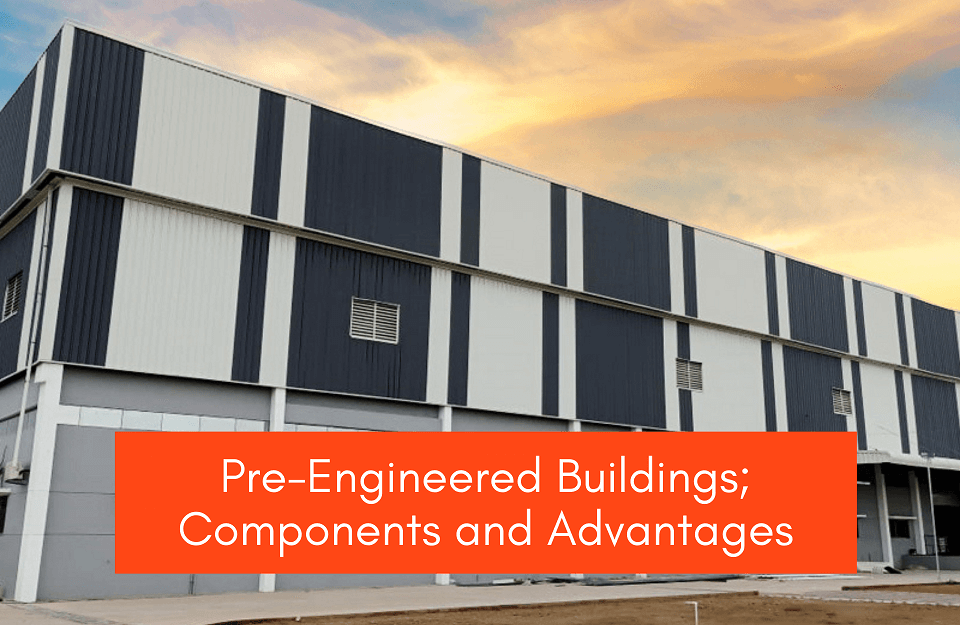- Bansal Roofing Products Ltd
- +91-9925050913
- inquiry@bansalroofing.com
Polycarbonate SKY LIGHTING SheetsUsed as a Sustainable Building Design

Types of Steel Deck used in Green Building Construction
August 26, 2020
Application of Pre-Engineered Buildings (PEBs)
September 22, 2020As the world seeks solutions to reduce energy and resource consumption, the demand for innovative building materials that contribute to more energy-efficient building design continues to increase. More and more, designers and builders are seeking materials solutions that satisfy customer requests for green structures, meet evolving regulatory requirements.
Polycarbonate sheets are one of the most popular materials in the construction industry. Polycarbonate has several unique advantages along with sustainability and cost-effectiveness, making it a favourite among architects, builders and contractors.
In recent years, polycarbonate sheets have become important to environmentalists, architects and designers with the rise in more environmentally friendly building structures. Any builder always looks for PC sheets when they focus on making Sustainable buildings or green buildings. Some of the advantages are – a future increase in energy efficiency, a reduction in greenhouse gas emissions and a lower carbon footprint.
What is a Polycarbonate Sheets?
Polycarbonate is a high performance, durable, amorphous, and transparent thermoplastic polymer and offers a unique combination of properties, with organic functional groups bound together by carbonate groups ( – O–(C = O)–O –). PC’s key properties, such as high impact strength, high dimension stability and good ionic conductivity, make it a popular plastic engineering.
Polycarbonate Sheets are made of polycarbonate polymer as mentioned above where this thermoplastic is manufactured and moulded/extruded in transparent long sheets to make it in a more usable form. PCs are incredibly tough and absorb minimal moisture, making it corrosion resistant to impact damage as well as water damage. It’s also flame-retardant and chemical resistant.
Main Properties of Polycarbonate:
The PC is an ideal material well known and commonly used in the construction industry due to its flexible features, eco-friendly manufacturing and recycling capacity. Polycarbonate sheets are a perfect substitute for glass, PMMA and PE because the combination of a unique set of chemical and physical properties makes it more durable. Let’s discuss a few other characteristics of the Polycarbonate sheet in detail.
#1 – Toughness and Strength:
Polycarbonates are highly resistant and impact resistant, as well as provide safety and comfort for highly reliable and performing applications. The density of the polymer 1.2-1.22 g / cm3 is maintained at up to 140 ° C and down to -20 ° C. PCs are also almost unbreakable.
#2 – Transmittance:
PC is an extremely transparent material capable of transmitting about 90% of the light as much as glass, and PCs are lighter than glass. Depending on the customer choice, these PCs can be customized as all these polycarbonate sheets are available in a wide range of colours and shades.
#3 – Lightweight:
Polycarbonate sheets are considered to be a great alternative to glass, as they provide the same features under lighter weights. Lightweight allows OEMs to effectively limitless design options compared to glass. The property also improves efficiency, facilitates the installation process and reduces overall transport and handling costs.
#4 – Protection from UV Radiations:
Polycarbonates provide 100% protection against harmful Uv rays and are designed to block Ultraviolet radiation making it ideal for using it in the greenhouse. Additional U.V. protection coatings are applied over and above addition of U.V. stabilizer during/before extrusion.
Also Read: Green Industrial Buildings For A Better Tomorrow
#5 – Chemical Resistance:
Polycarbonate has excellent tolerance to diluted acids, aliphatic carbohydrates and alcohols, medium protection against oils and greases. Diluted alkalines, aromatic and halogenated hydrocarbons can quickly damage the PC. You need to be extra careful while cleaning the PCs because the chemical nature can be altered. Manufacturers advise the cleaning of PC sheets with certain cleaning agents that do not affect the chemical composition of the polycarbonate.
#6 – Heat Resistance:
The polycarbonates are thermally stable up to 135 ° C with excellent heat resistance. Further tolerance to heat may be increased without altering the structural properties by introducing flame retardants.
Flexibility of Polycarbonate:
It can be cold-formed and thermoformed without losing impact or weathering properties.
From opaque cladding panels to roof domes to louvres, monolithic PC sheet products are designed and manufactured in a diverse range of shapes using thermoforming, a heat-based thermoplastic shaping technique.
Some monolithic and multiwall materials can be cold curved over curved support glazing profiles to suit many glazing applications such as roof domes, walkways, skylights, and architectural roofing projects.
Polycarbonate is heated, cooled and heated again until the desired structure is obtained without any degrading effect because it is thermoplastic. And due to the same non-degrading property, it is 100 % recyclable.
Aesthetic looks and Energy Efficiency with Polycarbonate sheets:
Beyond its strength and shape flexibility, a polycarbonate sheet can also enhance the visual aesthetic needs of a design requiring colouring options. However, the colour options are not for visual benefits alone. The colour options for the PC sheet contribute to light management. For buildings in hot climates or with south-facing features, polycarbonate sheet in white significantly reduces solar heat buildup, helping to maintain comfortable interior temperatures. The specially tinted sheet reduces the brightness of sunlight to a pleasing level, which can help minimize cooling costs in the summer.
Regarding a solar control, the advantage of the material is that it allows in as much natural light as possible while blocking the infrared (IR) spectrum that carries heat. PC sheets can selectively absorb a large part of the near-IR spectrum of sunlight and significantly reduce heat buildup while transmitting diffused daylight. Either in monolithic or multiwall form, solar control IR sheet grades can help maintain comfortable interior temperatures and potentially reduce air-cooling costs in the summer.
Also Read: Pre Engineered Buildings – Know More About PEBs Structure
Durability and Long-Lasting Qualities Of Polycarbonate sheets:
Another important aspect of selecting a material is durability. Reinstallations are costly, time-consuming, and, most importantly, avoidable. Polycarbonate sheet has an excellent reputation for maintaining colouring and strength over time, even in stressful conditions.
To build a truly sustainable building, the materials and building design combine to minimize the overall cradle-to-cradle environmental impact across the life cycle. A multiwall polycarbonate sheet with IR absorption technology results in a 15-25% lower life cycle greenhouse gas emissions than double-pane glass.
And help to reduce the greenhouse gas emission and fossil energy demand through production, installation, and building. While actual performance will depend on local climate, window thickness, facing (north or south), window surface area, and other factors, these results are indicative of the benefits of careful consideration of materials and design.
Installation Savings:
When analyzing the sustainability of a building, the cost of construction is an important measure not to be overlooked. From transport to on-site breakage, financial losses and ecological impacts of installation can rise dramatically if builders select the wrong material. Polycarbonate sheet offers weight savings of more than 50% compared to glass of the same thickness. The multiwall sheet delivers even greater weight savings.
Lighter weight may lead to significant fuel savings in transportation, makes handling easier, and may contribute to lower overall labour and installation costs. Also, lighter-weight sheet products require less supporting structure (glazing bars, etc.), which reduces raw-material consumption.
The exceptionally stiff sheet absorbs roof movements caused by thermal expansion and contraction as well as wind and snow load without the risk of cracking or breakage. Even at lengths up to 472.4 in. (12 meters), the material does not require any intermediate support profiles.
Cost-efficient and flexible in its design capabilities and versatility, a polycarbonate sheet is positioned to help meet the demand for energy-efficient buildings constructed with sustainable products. As the next great architectural challenges arise, the use of polycarbonate sheet will likely increase, and new material innovations will undoubtedly emerge to meet the needs of the industry.
If you are looking for any reliable and honest supplier or manufacture of Polycarbonate sheets near you, then your search ends at Bansal Roofing Products Limited. “BRPL” is one of the experienced manufacturers and dealers of roofing material or Pre-engineered buildings. They have evolved with the industry and have moulded their product to provide the best designs at the best cost range.
BRPL provides a range of Polycarbonate products with a high degree of flexibility and durability. Specialize in skylight sheets we offer plain, frosted, profile, multiwall, coloured polycarbonate sheets for construction.






